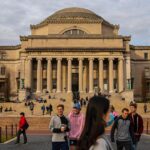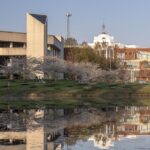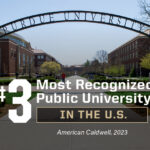Princeton University News takes center stage, showcasing the institution’s rich history, academic prowess, and global impact. From its founding as the College of New Jersey in 1746 to its current standing as a world-renowned research university, Princeton has consistently pushed the boundaries of knowledge and innovation. This exploration delves into the university’s vibrant campus life, its commitment to academic excellence, and its contributions to shaping a brighter future.
The story of Princeton University is one of constant evolution, driven by a relentless pursuit of knowledge and a dedication to fostering a diverse and inclusive community. From its early days as a small, religious college to its current status as a global leader in research and education, Princeton has played a pivotal role in shaping the world we live in today.
Princeton University
Princeton University, a renowned institution of higher learning, has a rich history spanning over three centuries. Founded in 1746 as the College of New Jersey, Princeton has evolved into a world-leading university, leaving an indelible mark on academia and society.
A Legacy of Learning
Princeton’s journey began with the establishment of the College of New Jersey in Elizabethtown, New Jersey. The institution was initially envisioned as a training ground for Presbyterian ministers, reflecting the religious fervor of the era. However, it quickly expanded its curriculum to encompass a broader range of subjects, laying the foundation for a more comprehensive educational experience.
In 1756, the college relocated to Princeton, New Jersey, and adopted the name “Princeton College.” This move marked a pivotal moment in the institution’s history, symbolizing its commitment to academic growth and intellectual pursuit.
Key Milestones
- 1768: Princeton College received its charter, officially recognizing its status as a higher education institution.
- 1896: The name was changed to Princeton University, reflecting the institution’s growing stature and expanded academic offerings.
- 1902: The Woodrow Wilson School of Public and International Affairs was established, marking a significant step in Princeton’s commitment to public service and international engagement.
- 1969: Princeton became the first Ivy League university to admit women, paving the way for greater diversity and inclusivity in higher education.
Notable Alumni
Princeton University has produced a distinguished roster of alumni who have made significant contributions in various fields. Some notable examples include:
- Woodrow Wilson: The 28th President of the United States, a prominent figure in international affairs and the founder of the League of Nations.
- Michelle Obama: The former First Lady of the United States, a lawyer, author, and advocate for education and women’s empowerment.
- Jeff Bezos: The founder of Amazon, one of the most successful entrepreneurs of our time.
- Alan Turing: A British mathematician and computer scientist, considered the father of theoretical computer science and artificial intelligence.
Shaping Higher Education
Princeton’s commitment to academic excellence has shaped the landscape of higher education. The university has consistently ranked among the top institutions globally, attracting renowned faculty and students from diverse backgrounds. Its rigorous academic standards and emphasis on interdisciplinary research have set a benchmark for higher education worldwide.
Impact and Legacy
Princeton’s impact extends far beyond its campus walls. The university’s research and scholarship have contributed to advancements in various fields, including medicine, technology, and the humanities. Its alumni have gone on to make significant contributions to society, holding positions of leadership in government, business, and academia.
“Princeton is a place where ideas are born, where minds are challenged, and where the world is changed.” – Princeton University motto
Princeton University’s legacy is a testament to the transformative power of education. Its commitment to academic excellence, intellectual curiosity, and service to society continues to inspire generations of students and shape the future of higher education.
Academic Programs and Research: Princeton University News
Princeton University is renowned for its exceptional academic programs and cutting-edge research. The university offers a wide range of undergraduate and graduate programs across various disciplines, consistently ranking among the top institutions globally. Furthermore, Princeton’s commitment to research excellence has fostered a vibrant intellectual environment, where faculty and students collaborate to make groundbreaking discoveries.
Top-Ranked Academic Programs
Princeton’s academic programs consistently rank among the best in the world. Here are some of the university’s top-ranked programs, highlighting their strengths and unique offerings:
| Program | Strengths | Unique Offerings |
|---|---|---|
| Engineering | World-class faculty, state-of-the-art facilities, strong focus on innovation | Interdisciplinary research opportunities, hands-on learning experiences, partnerships with leading tech companies |
| Computer Science | Highly regarded faculty, cutting-edge research in artificial intelligence, machine learning, and cybersecurity | Strong focus on theoretical foundations, access to advanced computing resources, vibrant student community |
| Economics | Renowned faculty, rigorous curriculum, emphasis on quantitative methods | Interdisciplinary research opportunities, close ties with leading economic institutions, strong placement record in top firms |
| Political Science | Strong focus on theory and empirical research, diverse faculty with expertise in various subfields | Opportunities for fieldwork and internships, access to renowned research centers, vibrant student organizations |
| History | World-class faculty, diverse curriculum covering global history, emphasis on primary source research | Access to extensive archival collections, opportunities for international research, vibrant seminar and lecture series |
Research Centers and Institutes
Princeton University houses numerous renowned research centers and institutes that contribute significantly to various fields. These centers provide a platform for interdisciplinary collaboration, fostering groundbreaking research and innovation.
- Princeton Plasma Physics Laboratory (PPPL): PPPL is a world-leading research facility dedicated to understanding and harnessing the power of fusion energy. The lab’s research has contributed significantly to the development of fusion technology, with potential applications in clean energy production.
- The Woodrow Wilson School of Public and International Affairs: The Wilson School is a renowned center for public policy research, offering a wide range of programs and research initiatives focused on global challenges, including climate change, economic development, and international security.
- The Center for Human Values: The Center for Human Values fosters interdisciplinary research and dialogue on ethical issues, promoting a deeper understanding of human rights, justice, and the common good.
- The Lewis Center for the Arts: The Lewis Center for the Arts is a hub for creative expression and innovation, offering a wide range of programs in the arts, including theatre, dance, music, and visual arts.
Research Opportunities for Students
Princeton University provides numerous opportunities for undergraduate and graduate students to engage in research and collaborate with faculty.
- Undergraduate Research Opportunities Program (UROP): UROP provides students with the opportunity to conduct research under the guidance of a faculty mentor. Students can participate in research projects across various disciplines, gaining valuable hands-on experience.
- Graduate Research Fellowships: Princeton offers a range of graduate research fellowships, providing financial support and opportunities for students to pursue independent research projects.
- Research Centers and Institutes: Many research centers and institutes at Princeton offer research opportunities for students, providing access to state-of-the-art facilities and collaboration with leading researchers.
Campus Life and Student Experience
Princeton University boasts a vibrant and diverse student body, known for its academic excellence and its active involvement in various aspects of campus life. This diverse community is a hallmark of the Princeton experience, fostering a rich intellectual and social environment.
Student Body Demographics and Interests
Princeton’s student body is comprised of individuals from diverse backgrounds, representing a wide range of interests and perspectives. The University actively promotes a welcoming and inclusive environment for all students.
- The student body is highly international, with students representing over 100 countries worldwide. This global perspective enriches classroom discussions and fosters cross-cultural understanding.
- Princeton has a strong commitment to diversity and inclusion, with a diverse student body in terms of race, ethnicity, socioeconomic background, and sexual orientation.
- Students at Princeton are passionate about a wide range of interests, from the arts and humanities to STEM fields and social justice. This diversity of interests is reflected in the numerous clubs, organizations, and events available on campus.
Extracurricular Activities and Student Organizations
Princeton University offers a vast array of extracurricular activities and student organizations, providing students with opportunities to pursue their passions, develop new skills, and connect with like-minded individuals.
- The University has over 500 student organizations, covering a wide range of interests, including academics, athletics, the arts, community service, and social justice.
- Princeton’s athletic program is highly competitive, with 31 varsity teams competing in the Ivy League. Students can also participate in a variety of intramural sports and recreational activities.
- The arts are an integral part of campus life at Princeton. Students can participate in a variety of performing arts groups, including the Princeton University Orchestra, the Princeton University Glee Club, and the Princeton Triangle Club.
- Community service is highly valued at Princeton. Students have opportunities to volunteer in local organizations and engage in service projects both on and off campus.
Student Resources and Facilities, Princeton university news
Princeton University provides a wide range of resources and facilities to support students in their academic and personal endeavors.
| Resource | Description |
|---|---|
| Libraries | Princeton has a world-renowned library system, including the Firestone Library, which houses over 9 million volumes. The libraries offer a wide range of resources and services, including research assistance, study spaces, and digital collections. |
| Athletic Centers | The University has several state-of-the-art athletic centers, including the Jadwin Gymnasium and the Dillon Gym, which offer a variety of fitness facilities, recreational activities, and intramural sports. |
| Student Support Services | Princeton provides a comprehensive range of student support services, including academic advising, career counseling, mental health services, and disability services. |
Admissions and Financial Aid
Princeton University’s admissions process is highly selective, reflecting its commitment to academic excellence and the pursuit of a diverse and inclusive student body. Prospective students are evaluated holistically, considering their academic achievements, extracurricular involvement, personal qualities, and potential contributions to the Princeton community.
Application Requirements and Deadlines
The application process for admission to Princeton University involves several steps, including submitting an online application, standardized test scores, transcripts, letters of recommendation, and an essay.
- The Common Application or Coalition Application is the preferred method for submitting the application.
- Applicants must submit scores from either the SAT or ACT standardized tests.
- Official high school transcripts are required, demonstrating the applicant’s academic performance.
- Letters of recommendation from teachers, counselors, or other individuals who can provide insight into the applicant’s character and abilities are essential.
- A personal essay allows applicants to showcase their writing skills and express their unique perspectives.
The application deadlines vary depending on the program of study. The Early Action deadline is November 1st, while the Regular Decision deadline is January 1st.
Commitment to Diversity and Inclusion
Princeton University is committed to building a diverse and inclusive community that reflects the richness and complexity of the world. The admissions process prioritizes students from diverse backgrounds, including those who are first-generation college students, students from underrepresented racial and ethnic groups, and students with unique talents and perspectives.
“We believe that a diverse student body enriches the educational experience for all and prepares our graduates to lead and serve in an increasingly interconnected world.” – Princeton University Admissions Office
Financial Aid Options
Princeton University is committed to making a Princeton education accessible to all qualified students, regardless of their financial circumstances. The university offers a comprehensive financial aid program that includes scholarships, grants, and loan programs.
- Need-based financial aid: This is the primary form of financial aid offered by Princeton. It is determined by the student’s and family’s financial circumstances and is designed to meet the full demonstrated need of each student.
- Merit-based scholarships: These scholarships are awarded to students who demonstrate exceptional academic achievement, leadership, or talent in specific areas.
- Work-study programs: Students can participate in work-study programs to earn income while gaining valuable work experience.
- Federal loan programs: Students may be eligible for federal loan programs to help finance their education.
Princeton University also offers a variety of resources and support services to help students navigate the financial aid process and manage their finances.
Notable Alumni and Impact
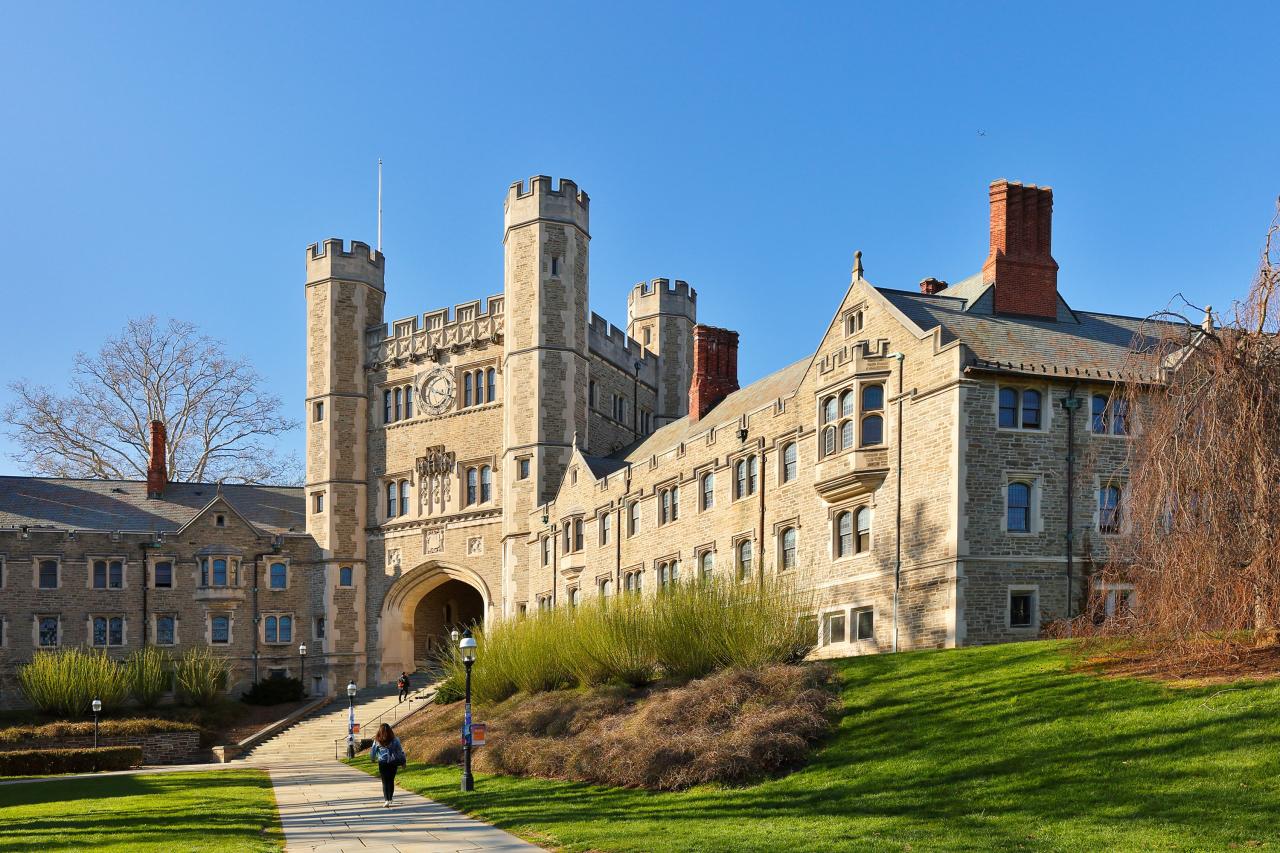
Princeton University has a long and distinguished history of producing graduates who have made significant contributions to society. From world leaders to renowned scientists, artists, and entrepreneurs, Princeton alumni have left their mark on the world in countless ways.
Prominent Alumni and Their Achievements
Princeton alumni have made significant contributions to various fields, including politics, science, business, and the arts. Here are some examples of prominent alumni and their achievements:
| Name | Field | Achievement |
|---|---|---|
| Woodrow Wilson | Politics | 28th President of the United States, founder of the League of Nations |
| Michelle Obama | Politics | First Lady of the United States, advocate for education and women’s rights |
| Jeff Bezos | Business | Founder of Amazon, one of the world’s wealthiest individuals |
| Albert Einstein | Science | Nobel laureate in physics, known for his theory of relativity |
| Toni Morrison | Literature | Nobel laureate in literature, known for her novels exploring the African American experience |
Princeton’s Impact on Society
Princeton University’s impact on society extends beyond its notable alumni. The university is a leading center for research and innovation, with faculty and students making groundbreaking discoveries in fields such as medicine, technology, and the humanities. Princeton also plays a vital role in shaping public policy and fostering global understanding through its engagement with policymakers and international organizations.
Examples of Alumni Impact
Princeton alumni have a long history of making a difference in the world. For example, former President Woodrow Wilson’s vision for a League of Nations laid the groundwork for the United Nations, while former First Lady Michelle Obama’s advocacy for education has inspired countless young people to pursue their dreams. In the realm of science, Albert Einstein’s revolutionary theories have transformed our understanding of the universe, while Toni Morrison’s powerful literary works have given voice to marginalized communities.
Current Events and Initiatives
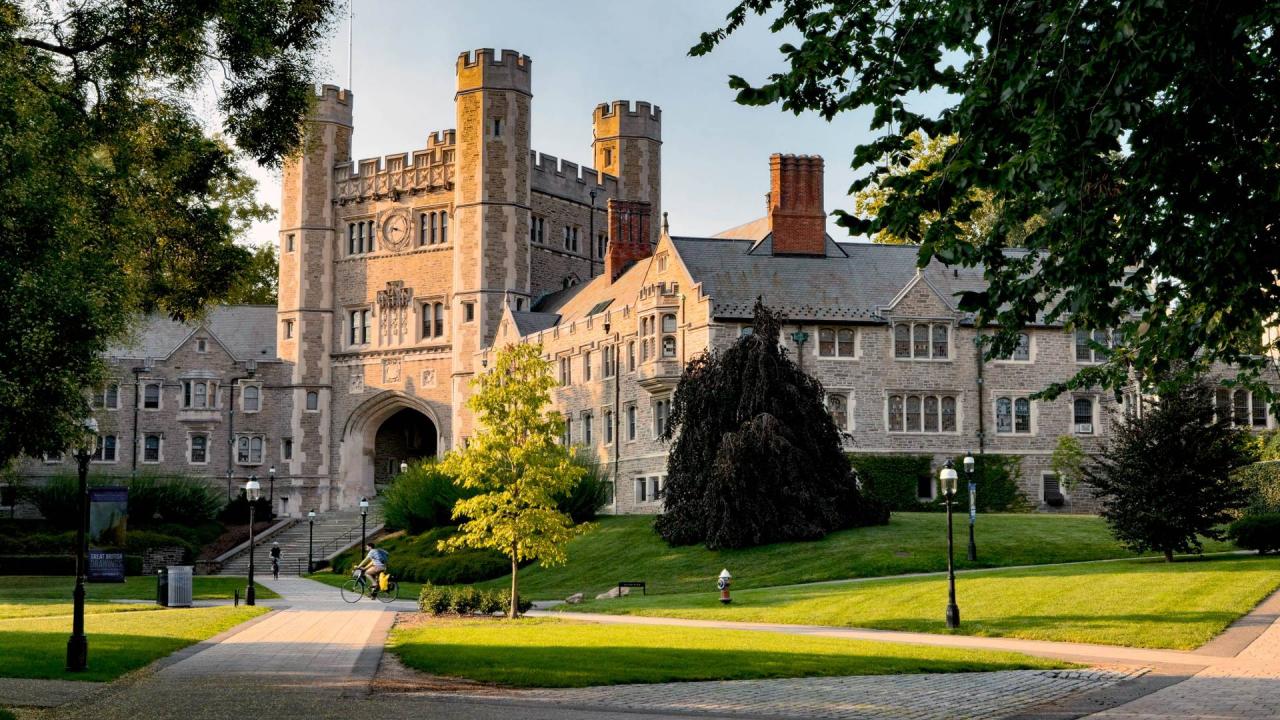
Princeton University is a dynamic institution constantly evolving to meet the challenges and opportunities of the 21st century. From groundbreaking research to innovative educational programs, the university is at the forefront of academic excellence and societal impact.
Research Advancements in Sustainability
Princeton is committed to addressing the urgent issue of climate change through cutting-edge research. The university’s researchers are making significant contributions in fields like renewable energy, carbon capture, and climate modeling. One notable example is the Princeton Environmental Institute (PEI), which brings together researchers from various disciplines to tackle environmental challenges. PEI’s work has led to advancements in understanding the impacts of climate change and developing sustainable solutions.
Campus Improvements and Student Life
Princeton is constantly investing in its campus infrastructure to create a vibrant and supportive learning environment. Recent initiatives include the construction of new academic buildings, the renovation of existing facilities, and the expansion of green spaces. These improvements enhance the student experience, fostering a sense of community and providing modern spaces for learning, collaboration, and recreation.
Community Engagement and Outreach
Princeton is deeply committed to engaging with its local community and beyond. The university offers a wide range of programs and initiatives that support local organizations, promote civic engagement, and address societal issues. For example, the Princeton University Community Service Office (CUSCO) connects students with volunteer opportunities in the surrounding area. CUSCO also facilitates partnerships between the university and local organizations, enabling students to make a real difference in their communities.
Campus Culture and Traditions
Princeton University boasts a rich tapestry of traditions and a unique campus culture that fosters a strong sense of community among students, faculty, and alumni. These traditions are deeply ingrained in the university’s history and contribute to the distinctive Princeton experience.
The Princeton Tiger Mascot
The Princeton Tiger mascot, a fierce and spirited embodiment of the university’s spirit, plays a prominent role in campus life. The tiger’s origins can be traced back to the early 20th century when the Princetonian, the university’s student newspaper, adopted the tiger as its symbol. The mascot has evolved over the years, and the current tiger, affectionately known as “The Tiger,” is a beloved figure on campus, cheering on the Princeton athletic teams and participating in various university events. The tiger’s presence is a constant reminder of the university’s history, tradition, and fierce competitive spirit.
The Annual P-rade
The annual P-rade, a vibrant and festive celebration held during the spring semester, is another cherished tradition at Princeton. This parade, which dates back to the early 20th century, is a colorful spectacle of music, dance, and student creativity. Students from various clubs and organizations participate in the parade, showcasing their talents and celebrating the diversity of the Princeton community. The P-rade is a testament to the university’s commitment to fostering a vibrant and inclusive campus culture.
The Role of Tradition in Fostering Belonging and Identity
Princeton’s traditions play a vital role in fostering a sense of belonging and identity among students and alumni. These traditions provide a shared experience that connects generations of Princetonians, creating a sense of continuity and history. From the iconic Nassau Hall to the annual Reunions, Princeton’s traditions offer opportunities for students and alumni to connect with the university’s past and to build a sense of community. The traditions serve as a reminder of the university’s values and its commitment to excellence, fostering a sense of pride and loyalty among Princetonians.
Challenges and Opportunities
Princeton University, like any institution, faces challenges and opportunities in the ever-changing landscape of higher education. These challenges and opportunities are not only internal to the university but also reflect broader societal trends and global issues.
Affordability and Access
Affordability remains a significant challenge for many aspiring students, especially those from underrepresented backgrounds. Princeton has made strides in increasing financial aid, but the cost of higher education continues to rise. The university is exploring various initiatives to ensure accessibility, such as:
- Expanding need-based financial aid programs to reach more students.
- Creating more merit-based scholarships for students from diverse backgrounds.
- Partnering with community organizations to provide early college programs and mentorship opportunities.
These initiatives aim to make Princeton more accessible to students from all socioeconomic backgrounds, fostering a diverse and inclusive learning environment.
Diversity and Inclusion
While Princeton has made progress in diversifying its student body, the university continues to strive for greater representation and inclusivity. This involves:
- Recruiting and retaining faculty and staff from diverse backgrounds.
- Creating a welcoming and inclusive campus climate for all students.
- Developing curriculum that reflects the diverse experiences and perspectives of the world.
Princeton recognizes the importance of fostering a campus culture that values diversity, equity, and inclusion, creating a vibrant and enriching learning environment for all.
Technological Advancements
The rapid pace of technological advancements presents both challenges and opportunities for universities. Princeton is adapting to this changing landscape by:
- Investing in cutting-edge research facilities and infrastructure.
- Developing new online learning platforms and resources.
- Preparing students for careers in the rapidly evolving tech sector.
These initiatives are crucial for ensuring that Princeton remains at the forefront of innovation and prepares its students for the future workforce.
Expanding Research Capabilities
Princeton has a long history of groundbreaking research, and the university continues to invest in expanding its research capabilities. This involves:
- Recruiting top researchers in emerging fields.
- Building state-of-the-art research facilities.
- Fostering interdisciplinary collaboration.
By investing in research, Princeton aims to make significant contributions to solving global challenges and advancing human knowledge.
Fostering Collaboration
Princeton recognizes the importance of collaboration in addressing complex societal issues. The university is actively fostering partnerships with other institutions, government agencies, and private organizations to:
- Conduct joint research projects.
- Develop innovative solutions to global challenges.
- Share best practices and resources.
These collaborative efforts aim to leverage the collective expertise and resources of different organizations to create a positive impact on the world.
Addressing Societal Issues
Princeton is committed to using its resources and expertise to address pressing societal issues. The university is actively engaged in research and initiatives focused on:
- Climate change and sustainability.
- Public health and well-being.
- Social justice and equity.
By addressing these critical issues, Princeton aims to contribute to a more just, equitable, and sustainable future.
Continuing to Excel
Princeton University is committed to its mission of excellence in teaching, research, and service. The university is constantly seeking ways to improve its programs, enhance its campus culture, and make a positive impact on the world. This commitment to excellence ensures that Princeton will continue to be a leading institution of higher education for generations to come.
Princeton’s Global Impact
Princeton University’s reach extends far beyond its New Jersey campus, impacting the world through its international partnerships, alumni achievements, and commitment to global citizenship.
International Partnerships and Collaborations
Princeton’s international collaborations are a testament to its commitment to advancing knowledge and addressing global challenges. The university engages in research partnerships with institutions across the globe, fostering cross-cultural exchange and promoting innovation.
- Princeton collaborates with the University of Oxford on the Global Challenges Initiative, a research program tackling issues like climate change, poverty, and infectious diseases.
- The Princeton Institute for International and Regional Studies (PIIRS) facilitates research and educational programs on global issues, connecting Princeton scholars with international experts.
- The Woodrow Wilson School of Public and International Affairs actively engages with international organizations like the United Nations, providing expertise and contributing to policy solutions.
Princeton Alumni Making a Difference
Princeton alumni are leaders in various fields, making a positive impact both domestically and internationally.
- Former US President Woodrow Wilson, a Princeton graduate, played a pivotal role in establishing the League of Nations, a precursor to the United Nations.
- Nobel laureate and Princeton alumna Malala Yousafzai is a global advocate for girls’ education, promoting access to education for all children.
- Princeton alumni are leading the way in international development, healthcare, and environmental conservation, working across borders to address global challenges.
Fostering Intercultural Understanding and Global Citizenship
Princeton’s commitment to diversity and inclusion extends to its global engagement. The university strives to foster intercultural understanding and prepare students for a world that is increasingly interconnected.
- The Council on International and Regional Studies (CIRS) offers programs and resources to support students interested in international affairs, encouraging them to engage with diverse perspectives and global issues.
- Princeton’s international student body enriches the campus community, fostering cross-cultural dialogue and understanding.
- Through study abroad programs and global research opportunities, Princeton provides students with experiences that broaden their horizons and cultivate their global citizenship.
The Future of Princeton University
Princeton University, a beacon of academic excellence and intellectual curiosity, stands at the cusp of a future brimming with both challenges and opportunities. As the landscape of higher education evolves rapidly, the university is actively preparing for the transformative forces that will shape its trajectory in the coming years.
Technological Advancements and Their Impact
The rapid advancement of technology is profoundly influencing the future of education. Princeton University is embracing this evolution by strategically investing in cutting-edge technologies and fostering innovative pedagogical approaches. The university recognizes that technology can enhance learning experiences, expand access to knowledge, and empower students to become future-ready leaders. For instance, Princeton is leveraging artificial intelligence (AI) to personalize learning pathways and provide tailored support to students. AI-powered tools can analyze student performance data, identify areas of improvement, and recommend relevant resources, fostering a more personalized and effective learning environment. Moreover, the university is exploring the potential of virtual reality (VR) and augmented reality (AR) to create immersive and interactive learning experiences, bringing historical events, scientific concepts, and artistic masterpieces to life. By integrating these technologies into its curriculum, Princeton is preparing its students to thrive in a world increasingly driven by data, automation, and digital innovation.
Princeton University in the Media
Princeton University, as a prestigious institution, attracts significant media attention. This coverage ranges from news reports on academic achievements and research breakthroughs to discussions on campus life, student activism, and the university’s role in shaping society.
Media Coverage Themes and Perspectives
The media frequently covers Princeton University’s academic excellence, research innovations, and contributions to various fields. For instance, a recent article in The New York Times highlighted Princeton’s groundbreaking research in artificial intelligence, focusing on its potential to revolutionize healthcare and other industries. Another article in The Wall Street Journal discussed the university’s commitment to diversity and inclusion, highlighting its efforts to create a more welcoming and equitable campus environment.
Media Portrayal of Princeton’s Strengths and Challenges
The media generally portrays Princeton as a leading academic institution with a strong reputation for academic rigor, intellectual vibrancy, and a commitment to research excellence. Articles often showcase the university’s impressive faculty, cutting-edge research facilities, and its graduates’ success in various fields. However, the media also acknowledges challenges faced by the university, such as the high cost of tuition, the pressure on students to succeed, and the need to address issues of diversity and inclusion.
Impact of Media Coverage on Public Perception
Media coverage plays a significant role in shaping public perception of Princeton University. Positive coverage reinforces its image as a prestigious and influential institution, attracting top students and faculty. Conversely, negative coverage, such as reports on controversies or student activism, can negatively impact the university’s reputation.
Princeton University stands as a testament to the enduring power of education and the transformative impact of knowledge. As we look to the future, Princeton continues to embrace innovation, challenge conventional thinking, and prepare its students to become leaders and changemakers in a rapidly evolving world. Its legacy of excellence, its commitment to inclusivity, and its global reach ensure that Princeton will remain a beacon of knowledge and progress for generations to come.
Princeton University news often focuses on academic achievements and research breakthroughs, but it’s also interesting to see how the institution connects with the wider world of sports. For example, the recent news about the university of Texas football recruiting news highlights the competitive landscape of college athletics and the impact of these programs on university reputations. While Princeton’s focus remains on academics, the university undoubtedly acknowledges the role of sports in building community and fostering school spirit.
Princeton University News often features groundbreaking research and innovative initiatives, showcasing the institution’s commitment to academic excellence. Similar to Princeton, the University of Texas at Austin News also highlights noteworthy achievements, highlighting the university’s contributions to various fields. Princeton University News provides a valuable platform for sharing knowledge and inspiring future generations.


